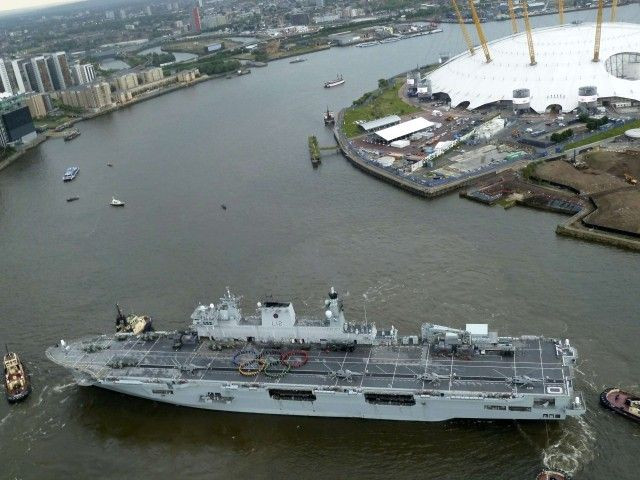Ticketless Boy Boards Plane From Manchester To Rome; Underscores Lax Security On The Eve Of London Olympics

Even as London gears up to host the Olympics with the biggest peacetime security operation underway since World War II, security measures at the Manchester airport, about 300 kilometers from London, came under scrutiny following reports that a 11-year-old boy boarded a plane from Manchester to Rome without a passport, ticket or boarding pass.
The boy managed to walk past the security checks at Terminal 1 on Tuesday mingling with families, and was only found mid-air on a Jet2.com plane when passengers grew suspicious. The boy stayed on board and was flown back to Manchester when the plane returned the same day evening.
Britain's Secretary of Transport Justine Greening said the incident was "incredibly concerning," the BBC reported.
"I treat security breaches very, very seriously indeed, so we are now reviewing urgently with Manchester Airport, and indeed the airline, exactly what happened," Greening said.
Some of the Jet2.com airline staff have been suspended following the incident, a Manchester Airport spokesperson said.
The airline said it has launched an investigation into the security breach.
"We have launched a full investigation into what is a serious incident, and the staff involved have been suspended pending the outcome," a spokesperson for the airline said. "The boy has been returned safely to his family."
The incident coincided with reports that the Olympic Park - owing to the military-civilian security measures worth $877 million and 12,200 armed forces personnel to carry out security and bag checks at the various venues - looked like "military bases in Iraq and Afghanistan."
John Burns, London bureau chief for the New York Times and a former war correspondent, said in a radio interview: "I have to say, having spent time out at Olympic Park, that it's a little bit of a disappointment in a certain sense," Burns said. "On the ground, because of security, it's become a kind of, well, one of my colleagues said it was a kind of Gitmo experience, meaning Guantanamo. Security is very tight indeed, as you would expect. There's a lot of wire mesh fencing to channel you around, there are concrete blocks, actually, a kind of environment that I'm very familiar with from the American military bases in Iraq and Afghanistan."
In the aftermath of the G4S security scandal, the government decided to deploy an additional 1,200 troops to secure the Olympic venues. The Secretary of Culture Jeremy Hunt said that G4S supplied an additional 1,100 guards Monday, but the company was yet to provide 10,400 more workers as per the original security contract.
It was recently revealed that G4S, the world's largest security company measured by revenues, had failed to fulfill its £284 million ($362 million) Olympics contract, in which it was supposed to provide 13,700 workers for the Games. The company said they have provided 5,800 security guards and will add another 1,000 before the opening ceremony on Friday.
The main Olympic Park in East London has more than 11 miles of razorwire-topped electric fencing, which separates the site from its surroundings, and every entrance is manned by soldiers and police with semi-automatic firearms.
Apart from the 12,200 military troops, 12,500 policemen, assisted by 7,000 civilian security workers will be on duty on the busiest days. An additional 5,500 troops will be involved in military operations outside the site, said an NBC report.
© Copyright IBTimes 2025. All rights reserved.






















